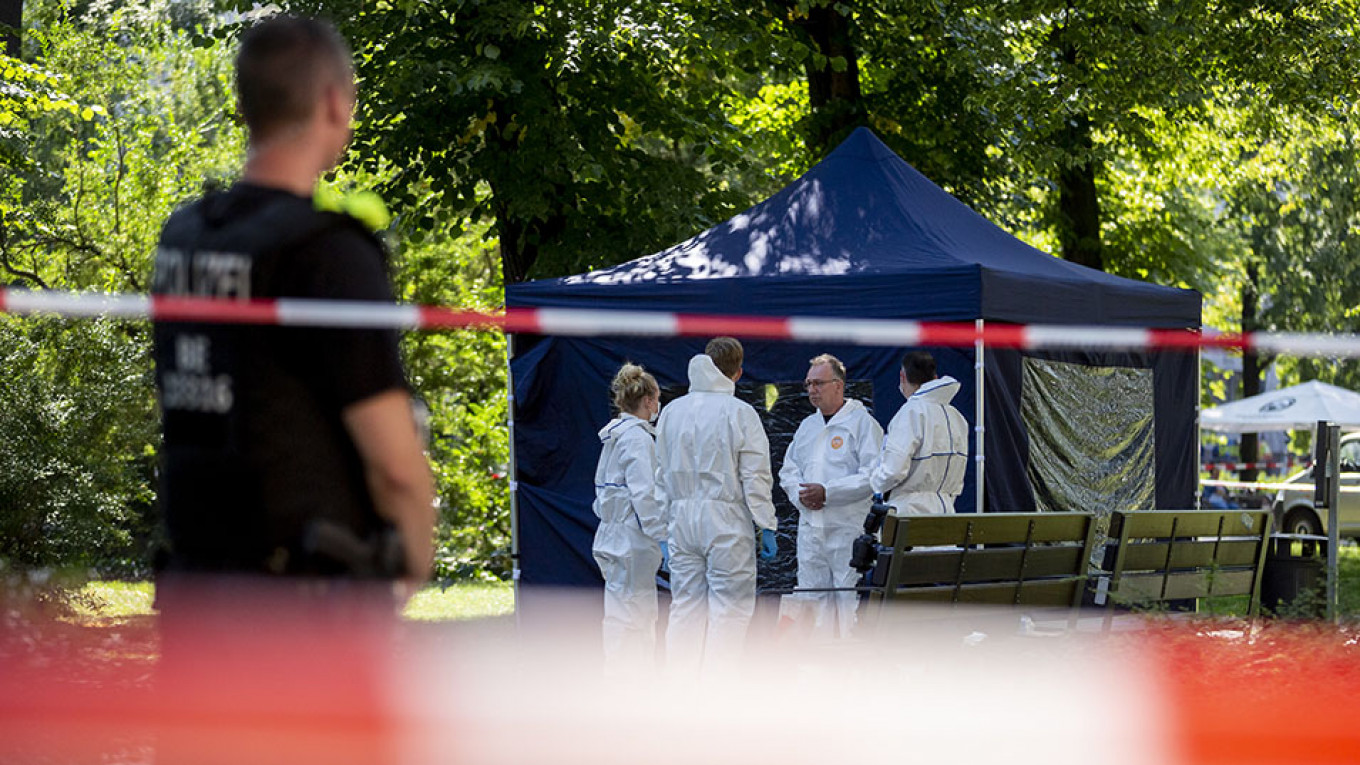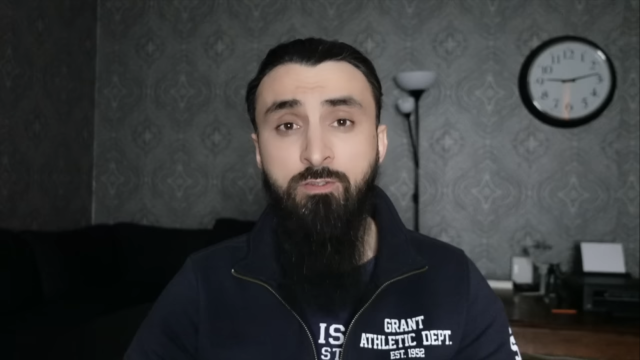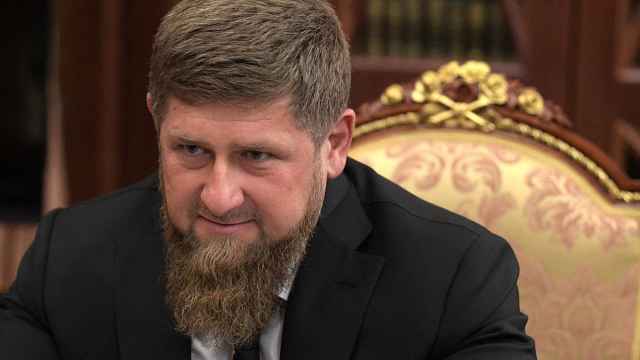A paper trail linked to the suspect in the killing of a Georgian citizen in Berlin suggests Russia provided “active support” to the suspect, according to an international team of investigators.
Germany last month arrested a man who goes by the name Vadim Sokolov on suspicion of killing Zelimkhan Khangoshvili, who fought alongside anti-Moscow separatists in Chechnya. Sokolov allegedly received a Russian passport, a French visa and traveled to Europe within a month, according to information obtained jointly by the German weekly Der Spiegel, the Russian investigative site The Insider and the U.K.-based investigative outfit Bellingcat.
The outlets’ joint report published Friday provides “overwhelming evidence that the arrested assassin acted with the full support of the Russian state,” Bellingcat said.
The team of outlets has obtained a copy of Sokolov’s still-active tax file, which was first opened weeks before he received his passport. The tax file, which Sokolov would need to show proof of employment to receive an EU visa, contained a 2015 Russian passport that raised another flag for Bellingcat.
A real-time passport database used by Bellingcat’s unnamed source marked Sokolov as a “person protected by law…To obtain this file, contact an administrator.” The restrictions apparently first appeared after the investigative outlet identified the suspects in last year’s poisoning of Russian defector Sergei Skripal as military intelligence officers.
The phone number of Sokolov’s listed employer allegedly matches that of a Russian Defense Ministry-owned company, according to Bellingcat. The outlet had suggested earlier that Sokolov’s passport number linked him to Russian security services.
“These findings preclude the hypothesis that this was an organized crime operation, or even a semi-official operation that received only limited support from individual corrupt officials,” Bellingcat said.
An anonymous email sent to investigators alleged that the suspect was a contract killer named Vladimir Stepanov released early from a Russian prison to assassinate Khangoshvili, The New York Times reported Wednesday. However, Bellingcat after extensive research called The New York Times’ report a “false lead.”
St. Petersburg’s Fontanka news outlet also reported Thursday that Stepanov is still serving his 24-year prison sentence. Bellingcat has confirmed Stepanov’s presence at the Bor penal colony 430 kilometers east of Moscow as of mid-September with photographs from an unnamed officer who works there.
The New York Times cited a former antiterrorism center chief in the ex-Soviet republic of Georgia as saying that a Russian handler believed to be an FSB officer was involved in a previous assassination attempt against Khangoshvili in 2006.
Russia almost certainly has a covert program to eliminate former Chechen separatists, Bloomberg columnist Leonid Bershidsky wrote. In 1999, President Vladimir Putin famously promised to “ice” the separatists under any circumstances, “even in the toilet.”
Moscow has been suspected of ordering killings of former Chechen fighters in Turkey, Austria, the United Arab Emirates and the U.K. Two Russian intelligence officers were convicted of killing a prominent Chechen in Qatar and later extradited to Moscow.
A Message from The Moscow Times:
Dear readers,
We are facing unprecedented challenges. Russia's Prosecutor General's Office has designated The Moscow Times as an "undesirable" organization, criminalizing our work and putting our staff at risk of prosecution. This follows our earlier unjust labeling as a "foreign agent."
These actions are direct attempts to silence independent journalism in Russia. The authorities claim our work "discredits the decisions of the Russian leadership." We see things differently: we strive to provide accurate, unbiased reporting on Russia.
We, the journalists of The Moscow Times, refuse to be silenced. But to continue our work, we need your help.
Your support, no matter how small, makes a world of difference. If you can, please support us monthly starting from just $2. It's quick to set up, and every contribution makes a significant impact.
By supporting The Moscow Times, you're defending open, independent journalism in the face of repression. Thank you for standing with us.
Remind me later.






